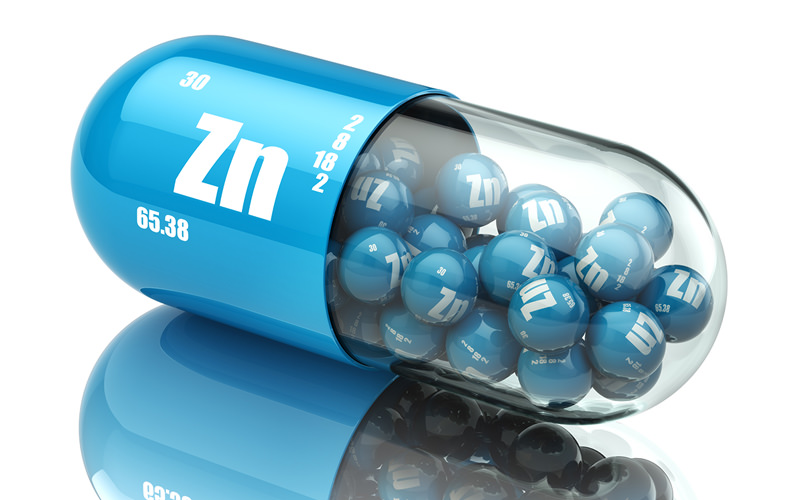Zinc is an essential trace mineral. This means you must obtain it through your diet or supplementation since your body can not synthesize it. And only a small amount is needed. Zinc is needed in over 100 enzymatic reactions in the body. It helps in protein synthesis, wound healing, DNA synthesis, cell division, and normal growth and development. Zinc needs to be consumed on a daily basis because there is no storage system in the body for it.
Zinc deficiency occurs when there is inadequate intake or absorption, increased losses or increased body requirements.
Causes of Zinc Deficiency
- Disease – Intestinal diseases, malabsorption, diabetes, malignancy, chronic diarrhea, sickle cell anemia, and alcoholism
- Diet – vegetarians are also at risk for zinc deficiency
- Copper – Taking large quantities of zinc (>50mg/day) daily for weeks may interfere with the absorption of copper.
- Iron – iron and zinc compete for absorption. Taking supplements of iron (38-65 mg/day) may decrease the absorption of zinc. This does not appear to be an issue for coming from iron in food.
- Folate – The bioavailability of dietary folate (B9) is increased by a zinc-dependent enzyme. Therefore low zinc intake may result in lower amounts of folate.
- Vitamin A – Zinc and vitamin A interact in multiple ways. Zinc deficiency may result in decreased release of Vitamin A from the liver and lead symptoms of night blindness.
Where is Zinc Helpful?
- Immune System – Mild to moderate zinc deficiency suppresses immune function. Zinc is needed for immune cell function and cell signaling.
- Inflammation – Zinc decreases oxidative stress and reduces levels of some inflammatory proteins. Chronic oxidative stress leads to inflammation.
- Macular Degeneration – Zinc prevents cellular damage in the retina, which helps in delaying the progression of AMD and vision loss,
- Depression – Zinc has a crucial role in regulating how neurons communicate with one another, affecting how memories are formed and how we learn. Zinc deficiency induces depression while supplementing with this mineral improved mood as well as cognitive function.
There are two kinds of minerals: macrominerals and trace minerals.
- You need larger amounts of macrominerals. They include calcium, phosphorus, magnesium, sodium, potassium, chloride and sulfur.
- You only need small amounts of trace minerals. They include iron, manganese, copper, iodine, zinc, cobalt, fluoride and selenium.
_____________________________________________________
Dr. Laurie Goldman is a medical doctor, psychiatrist, and functional medicine practitioner who’s been in private practice since 1999. She founded Clear Path Wellness to help her patients reach their maximum state of mental and physical health using a personalized, comprehensive approach powered by the principles of functional medicine, which treats the whole person, not just symptoms.
About Clear Path Wellness | Services | Contact

